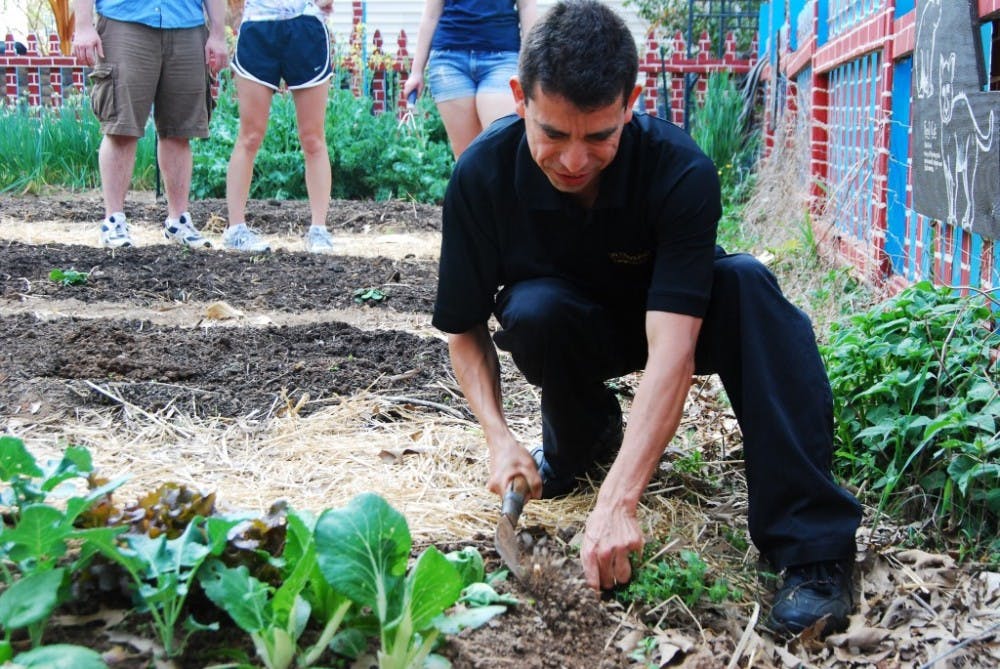Students in Elon University’s Garden Studio class spend their time working in the Elon Community Garden to maintain its upkeep and harvest crops for course credit.
But for Delio Estrada-Palacios, the quaint garden behind Powell House is a place to reminisce.
Estrada-Palacios, a custodian for Elon Campus Dining, came to the United States from Guatemala 23 years ago. After spending five years in California and 12 years in New York, he came to North Carolina – and Elon’s campus – in 2007.
Though Estrada-Palacios said he enjoys working on Elon’s “pretty campus,” he still longs for the place he left behind so many years ago – his grandmother’s large plantation farm in Guatemala, where he worked for most of his early life.
“I started working on my grandma’s farm when I was 10 years old,” Estrada-Palacios said. “I planted and did preparations. Mostly we planted crops like beans and corn, and I took care of cows, chickens and horses.”
When Estrada-Palacios discovered Elon Community Garden, he felt like he was home at last among the familiar plants and vegetables.
“When I first met Delio out in the garden, I saw him standing there, communing with the garden,” said Michael Strickland, instructor of the Garden Studio class and lecturer in English and environmental studies. “I walked out and talked to him and he said, ‘I can’t have a garden where I live right now, so I like to come out here and feel like I’m part of it all.’”
Estrada-Palacios began spending much of his free time in the garden. He even discovered a variety of tomato growing in the garden that reminded him of tomatoes that grew on his grandmother’s farm.
“I remember the day Delio brought that up and said, ‘These taste very different (from other tomatoes grown in the U.S.),’” Strickland said. “The commercial name for it is Matt’s Wild Cherry Tomato, but it is genetically the closest tomato we have on the open market to being like the original domesticated tomato, which was very small.”
During his visits to the garden, Estrada-Palacios became close friends with Strickland, who invited him to do a planting demonstration for the Garden Studio class April 18. Estrada-Palacios showed the class how to turn soil and plant bean seeds using indigenous tools brought from Guatemala called a machete pando and a chuso.
Students said they were amazed at Estrada-Palacios’ accuracy and speed as he did the demonstration, especially at his ability to toss the seeds into the soil without bending over.
“It was really neat how quickly he was able to plant the beans,” said senior Caroline Pittard. “Several different tasks became one task for him. We would dig the holes, place the seeds and then cover the seeds up, but he was able to do all three of these things in one swift movement.”
When Estrada-Palacios isn’t working or spending time in the garden, he dreams of returning home.
“I try to visit Guatemala every two years,” he said. “Maybe in my retirement I could go back over there. I have some land and I could work there with my brother. That would be nice.”
“I may go with you,” Strickland joked.
“Come,” Estrada-Palacios said. “As we say in Spanish, ‘Mi casa es tu casa.’ You can come anytime you want.”


